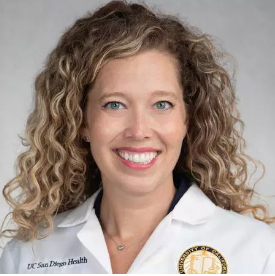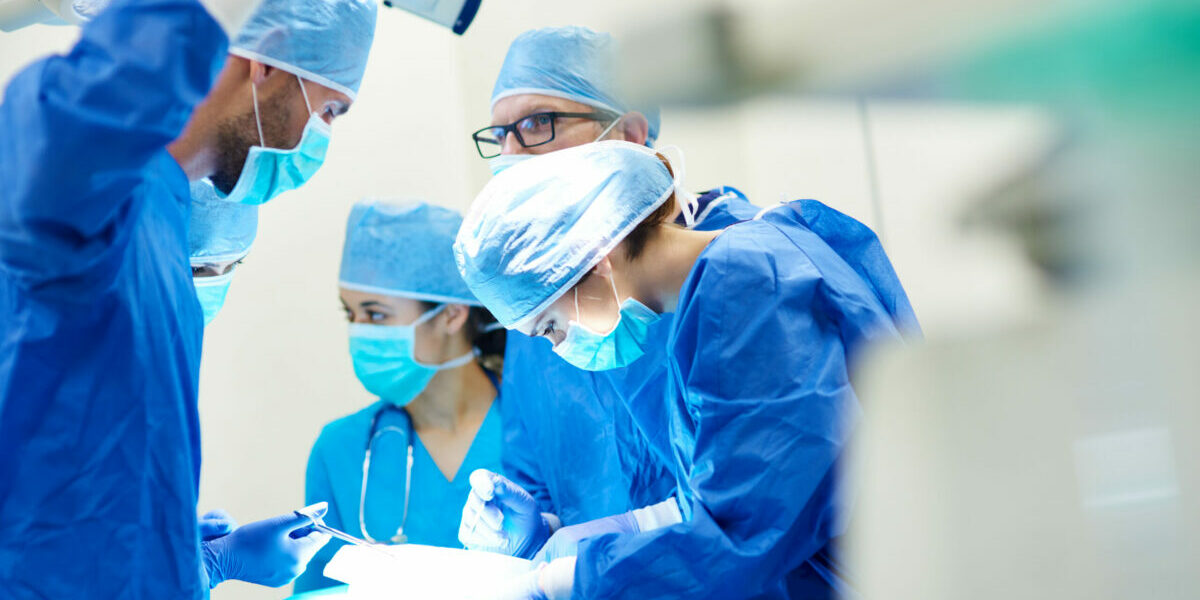Aleah Brubaker, MD, PhD, is a board-certified surgeon who specializes in abdominal (liver and kidney) transplantation in adult and pediatric patients. She also has expertise in surgical treatment of liver tumors, hepatocellular carcinoma, liver cirrhosis and end-stage renal disease.
As an assistant professor in the Department of Surgery, she trains medical students, residents and fellows at UC San Diego School of Medicine. Dr. Brubaker’s research interests include transplantation and the human microbiome.
Her work has appeared in medical and research publications, including Transplantation and Clinical Transplantation. Dr. Brubaker has co-authored several book chapters on transplantation. She also has presented her work on transplant outcomes and pediatric transplants at various national meetings.
Dr. Brubaker completed a fellowship in transplant surgery at Stanford Health Care in Stanford, Calif., where she also did her residency in general surgery. She holds both a medical and doctorate degree from the Loyola University Medical Center in Maywood, Ill. She is board certified in general surgery.
Dr. Brubaker is a member of the American Society of Transplant Surgeons and the American College of Surgeons.
In her free time, Dr. Brubaker enjoys hiking, swimming, skiing and cooking.





